










The minority National Democratic Congress (NDC) in Parliament has been vindicated by Aker Energy’s decision to relinquish its interest in the AGM South Deep Water Tano Cape Three Points (SDWT/CTP) block, Deputy Minority Leader, Emmanuel Armah-Ko Buah has stated.
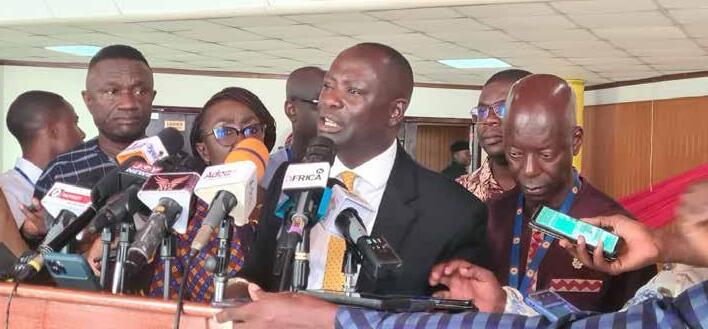
According to him, the minority during a debate on the oor of the House on the deal in 2021 vehemently opposed the proposed sale of the block to government at the cost of GH¢ 1.65billion, arguing that it was not in the interest of the nation.
Addressing a press conference in response to a news publication that suggests that, the minority has been silent on the decision by AGM, a subsidiary of AKER Energy, to pull out of the US$1.65 billion transaction with the Ghana National Petroleum Corporation (GNPC), the former Energy minister showed videos of himself debating against the proposed sale on the oor as a vindication of his side.
Energy Minister, Dr Matthew Opoku Prempeh told parliament that government fully backed GNPC’s decision to acquire stakes in the $1.6bn Aker-AGM deal to acquire 70% stake in the South Deep Water Tano (SDWT/CTP) and another 37% stake in the Deep Water Tano/Cape Three Points (DWT/CTP).
Until the recent announcement, the SDWT/CTP was

operated by AGM Petroleum Ghana Limited while the DWT/CTP is operated by Aker Energy Ghana Limited. Apart from the NDC minority, some civil society organisations have raised issues about the acquisition describing it as threatening the country’s economic and scal outlook. The CSOs who raise red ags about the valuation includes IMANI Africa, Africa Centre for Energy Policy (ACEP) and other petroleum among other energy experts.
According to the Ellembele MP, the minority stood up for Ghanaians when AKER tried to sell the AGM block emphasizing that, that it was not of value and was risky but the NPP Government nearly paid over $1 billion for it.
“The minority in parliament stood up when Aker tried to sell the AGM south deep water Tano block, we stood up and spoke and we will never betray the people of Ghana.
“…we want to basically let the people of Ghana know that we stood up. We continue to stand up, when it came to the issue of Aker basically coming to parliament to water down our take as a country and to reduce the power of the regulator the Petroleum commission, we spoke about it. We insisted it was wrong and today we know it; AKER has basically been dilly dallying the people of Ghana and has not developed our elds. Sadly, we have three development elds,” Mr. Armah-Ko
Buah stated.
Ghana would have lost over $ 1 billion had GNPC acquire the blocks but for the minority’s opposition to the deal.
The caucus said the recent announcement by AGM of relinquishing the block vindicates its position against the propose sale to GNPC.
According to the news publication, the NDC have some competent materials who have, at various times, worked in the Energy Ministry and understand the fallout of the botched transaction, but observers have been worried at the deafening silence of the minority, especially those on the Mines and Energy Committee.
Amongst these are; Edward Bawa, Member of Parliament Bongo in the Upper East Region and the Ranking Member, John Jinapor, MP for Yapei-Kusawgu in the Savanna Region, Kwabena Donkor, MP for Pru East in Bono East Region and Emmanuel Armah Ko Buah, the MP for Ellembele in the Western Region. They have either been spokespersons, deputy ministers, or substantive ministers at the Energy Ministry; interestingly, they have kept total silence on the matter since news broke that the transaction had collapsed because AGM had pulled out, technically, handing over the oil some state o cials were willing to sink over US$1.65 billion for free. The NDC minority addressed the media to discredit the claim by the new report.

Commissioner to Ghana, Grace Jaenet Mason, has announced plans of more investments between her country and Ghana aimed at boosting trade volumes and intra-africa trade.
Trade between Ghana and South Africa is already in excess of US$5 to 6billion annually, and available data reveal that as of November 2022, the top exports of South Africa to Ghana were Hot-Rolled Iron Bars (ZAR294M), Organic Composite Solvents (ZAR238M), Trailers and semi-trailers, not mechanically propelled... (ZAR229M), Delivery Trucks (ZAR194M), and Machinery Having Individual Functions (ZAR176M).
Speaking with the press during the Global South Africans reception and the commemoration of Human Rights Day, on Tuesday, at her residence in Accra, she said “we can do more and we will do more, the Africa Continental Free Trade Area (AfCFTA) is a catalyst for us to do more, create value chains so in all sectors
Ghana will nd what they have as a niche in industries, economies and South Africa will also have our niche as we tend begin to collaborate, trade.
We are already trading and as you look, we have got over 200 South African companies that are all over from our mining sectors to services, banking sectors and we are bringing in more in terms of investments, infrastructures, development, more trade, more services, we are going to use precisely the reason why we do it on the backdrop of AfCFTA is because there is a blackfold and we also have instruments that makes ease of business more easier with none of the areas to trade.
As we noticed last week, Ghana and Nigeria were trading in terms of Pan African payment settlement system so that is the next opportunity for South Africa and we are going to be trading but it’s a vision our fore fathers had for us; now is imple menting it.
There are targets and the Secre tary General of the African Conti nental Free Trade Area has been given out pronouncement and feedbacks from the meetings of
the leaders of the elderly section of the AU and in there are the results and progress made to date. I particularly is looking forward to the protocol that we envisage to sign in July of 2023 which is a protocol on women and youth and trade.
She also disclosed that, with South Africa being a new member of the UN Human Rights Council will leverage on its membership to ensure the protection of human rights and freedoms.
March 21 is celebrated as a public day in South Africa to remember the killings committed on 69 South Africans during the apartheid era.
“In South Africa today, it is public day and a human rights day -this is a day we celebrate, as we celebrate we remember the atrocities that were committed by the apartheid era where 69 South Africans that were protesting were killed ..so this is a day we say never again and to say that South Africa has a constitutional democracy, we have a bowl of rights and
By Eugene Davisenshrined in our bowl of rights is our constitution, our democracy, equal rights, right to freedom, right to education, freedom to speech.
Ideally this day is our Human Rights Day and our theme which is consolidating human rights and looking into the future and also to know that SA is part of the United Nations Human Rights Council from the 1st of January, 2023 for three years…so in these platforms and areas, are where we will be advocating for human rights”
She added that her Global South Africans are excited to be living and doing business in Ghana, indicating that over 500 South Africans are doing business in Ghana.
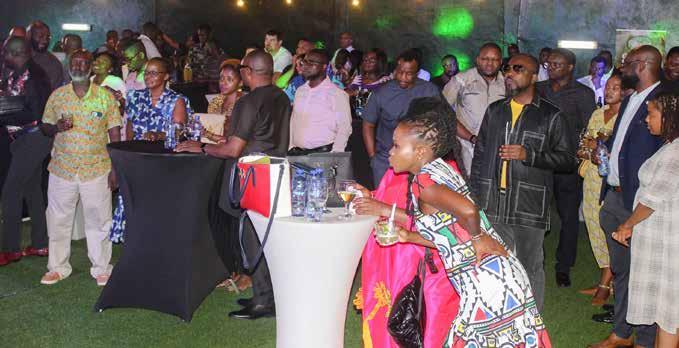
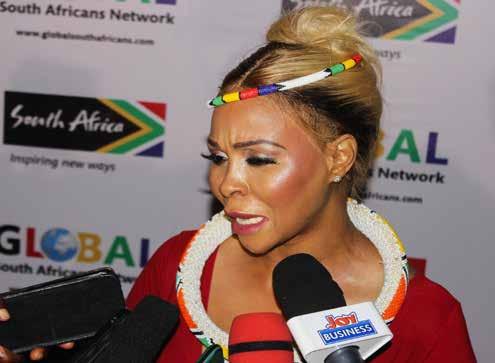
The Global South Africans (GSA) is a project led by Brand South Africa to enlist the talent, experience and credibility of South Africans living abroad, permanently or temporarily to help realise the promise South Africa demonstrated in the “miracle” of 1994 and the National Development Plan (Vision 2030).
The Progressive Licensing Scheme (PLS) is an initiative of the Food and Drugs Authority (FDA) launched in July 2020 to support micro and small-scale industries to progressively comply with Good Manufacturing Practices to ensure qual-
ity and safe products on the market.
The initiative contributes signi cantly to economic development by maintaining consumer con dence in the food system and providing sound regulatory foundations
by supporting Government's Industrialization Agenda.
The PLS coupled with the FDA’s risk-based product registration process has ensured that locally manufactured food, cosmetics, and household chemical substances
reach the market faster without compromising their quality, safety, or wholesomeness.
The Scheme uses a 3-tiered approach for licensing the micro and small-scale manufac-
Story continues on page 4
Story continued from page 3
implementation of the PLS this performance increased to ninety-one (91) percent. To date the total of 2,917 products have been registered under PLS: 2,405 food products and 512 cosmetics and household chemical substances.
The PLS commenced with the food industry in 2020, cosmetics and household chemical substances industry in 2021, will also include the herbal medicine industry in 2023. This move, the FDA explained is to extend the success stories of PLS to the herbal medicine industry.
and international standards. “We are determined to continuously pursue this agenda with our partners including the GEA, the Ghana Export Promotion Authority, and the Ghana Standards Authority” she said.
Dr. Darko also called on local manufacturers to increase their production levels whilst maintaining high-quality standards at competitive prices in order to boost domestic demand that will drive economic growth.
GH¢1.850 million. These companies are micro or small enterprises as de ned by the GEA.
The three-stage-licensing level of the PLS (i.e., Pink, Yellow and Green) focuses on small and micro-scale and cottage-scale food and cosmetics producers. The scheme relies on high-quality, transparent and independent scientific advice.
turing facilities: issuing pink, yellow, or green licenses based on the level of compliance. The targeted Good Manufacturing Practice (GMP) Training and technical assistance provided to clients of the PLS enables them to meet fundamental requirements of GMP.
Data from the FDA indicates that prior to the commencement of PLS in 2019 ve (5) percent of micro and small-scale enterprises that applied for licensing were licensed only after meeting the full requirements. Following the implementation of PLS this performance has increased to one hundred
(100) percent. As at the end of December 2022, nine hundred and fty-two (952) facilities have been licensed under PLS: six hundred and sixty (660) food manufacturing facilities and two hundred and ninety-two (292) cosmetics and household chemical substances.
For products registered, prior to the commencement of PLS in 2019 fty-two (52) percent of product registration applications submitted by micro and small-scale enterprises were registered. Following the
The PLS compliments the FDA ‘Buy Ghana, Love Ghana’ campaign initiative which aims to stock 60 percent locally manufactured FDA regulated products in high-end supermarket chains in Ghana. With the commitment of collaborating supermarkets to stock products registered by the Authority, there has been an increase in the stocking and sale of registered locally manufactured products in A-rated malls and supermarkets across the country.
FDA’s CEO, Dr Delese Mimi Darko has emphasized the Authority’s commitment to ensure that products which are registered through the scheme meet both local

Data from the Ghana Export Promotion Authority (GEPA) shows that Non-Traditional Exports (NTEs) have signi cantly increased since 2017, and particularly in 2020 when the PLS was introduced. For example, NTE earnings for the period January to December 2021 amounted to US$3.33 billion, re ecting a growth of 17 percent over the 2020 earnings. The bulk of these exportable products falls within the framework of the PLS, comprising cocoa paste, re ned palm olein, powdered pepper, fruit juice, processed shea, plantain snacks, and cosmetics among others.
The PLS has already absorbed part of the licensing fee of some 500-member facilities to the tune of almost
Bene ts of the scheme include access to technical support and training in Good Manufacturing Practices (GMP), shorter processing periods, and subsidized application fees.
The success story of PLS cannot be told without mentioning FDA’s strong collaboration with the Ghana Enterprises Agency (GEA) Mastercard Foundation Young Africa Works program that provided funds for young entrepreneurs on the PLS.
FDA invites all micro and small-scale manufacturers in food, cosmetics, and household chemical substances and herbal medicine industries to join the scheme.
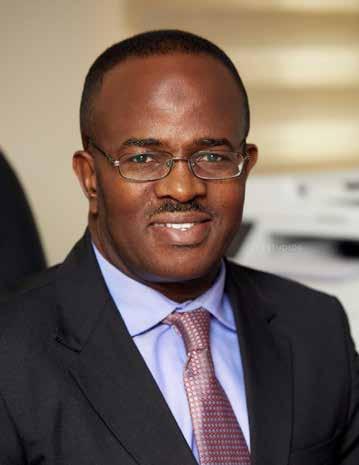
FBNBank Ghana has reafrmed its commitment to championing gender equality and to empower women as part of the celebration of International Women’s Day which it marked with a unique event that highlighted the theme for the year, “DigiTall: Innovation and Technology for Gender Equality” and climaxed with the roll-out of a special women’s account, FirstGem.
The event which was attended by customers, management and sta of the bank and the media was organised by the FBNBank Women Network, an internal ladies’ group which promotes the advancement and equal opportunities for women in FBNBank.
The activities during the event included a panel
discussion themed on the celebration’s hashtag, “EmbraceEquity” which encourages women to venture into the technology in order to bene t from the many opportunities it o ers. All the panelists emphasized the need for women in technology to work hard and trumpet their achievements in order
Story continues on page 5
Story continued from page 4
to create visibility.
The panelists for the discussion included Farida Bedwie, a Software Engineer, Audrey Mnisi Mireku, Chief Information Security & Risk O cer at the Ghana Association of Banks (GAB) and Mr. Henry Obike, Head of E-Business, FBNBank Ghana.
Delivering the welcome address, Grace Isaac-Aryee, Treasurer of FBNBank Ghana and Chairperson of FBNBank Women’s Network said, “the celebration of International Women’s Day is an opportunity to celebrate ourselves and appreciate each other for our tireless work and dedication to making meaningful contributions to the World. It is also an opportunity to celebrate the unique role we play in shaping the society through our personal and professional achievements for which, I
believe, our men can stand up and celebrate us.”
As part of the evening’s activities and as part of this year’s International Women’s Day celebrations, the Bank launched the FirstGem Account. This banking product is aimed at empowering women professionally and nancially and comes with bene ts which include a higher interest rate return reward on deposits and an interest rate much lower than the commercial lending rate.
Commenting on the FirstGem account, the Head of Retail Banking, Allen Quaye said, “the introduction of FirstGem is aimed at o ering women an opportunity for empowerment nancially and also in the business arena.
It is structured to help close the gender gap in line with what the Bank practices. First-
Gem Account comes in three variants; the FirstGem Current Account for individuals, the FirstGem Savings Account also for individuals and the FirstGem Finance for registered women-owned businesses. Additionally, FirstGem o ers women capacity-building through thought-leadership workshops, business advisory services, and business skills. It will also provide wealth management and investment opportunities and convenience to all holders of the account.”
Speaking at the event, the Managing Director of FBNBank, Victor Yaw Asante, who is also the patron of the FBNBank Women’s Network said, “at FBNBank, we put women at the core of our work and operations, so as we mark this year’s International Women’s Day, FBNBank dedicates the entire month of March to celebrate

women (who are female colleagues, customers or relatives) as a recognition of their impact in bringing positive balance to our lives and as a mark of appreciation for them.”
FBNBank has in its 26 years of operating in Ghana remained focused on putting its customers and communities rst. This, it has sought to do through the rich value and excellence of what the Bank contributes to the relationship with its stakeholders as a whole, particularly the customers. FBNBank Ghana is a subsidiary of First Bank of Nigeria Limited, which is renowned for its great customer service and general stakeholder engagement garnered over its 129 years of operation. FBNBank Ghana has 23 branches and 3 agencies across the country with over 500 sta . FBNBank o ers universal banking services to individuals and businesses in Ghana.
The Bulk Oil Storage and Transportation Company Limited (BOST) was formed in 1993 to keep the national strategic petroleum reserves and transport petroleum products from one depot to another throughout the country. Their strategic ambition is to become the number one fuel and logistics business in West Africa and in recent times have chalked many milestones.
BOST in this relatively short period of time, under the inspired leadership of Mr. Edwin Provencal. As a Ghanaian Bank we particularly prioritize our service to Ghanaian enterprises.
Universal Merchant Bank (UMB), a leading indigenous Ghanaian Bank in Ghana recently undertook a recognition and courtesy event for one of its leading customers, the Bulk Oil Storage and Transportation Company Limited (BOST).
The event was to celebrate the recent successes and revival at BOST including the recognition of the Managing Director, Mr. Edwin Provencal as the CEO of the year for the Petroleum Sector in Ghana.
The prestigious award was presented at the recent Ghana Business Standard Awards
where Mr. Edwin Alfred Provencal was adjudged the Petroleum Sector Chief Executive O cer of the Year, 2022 at the 6th Ghana Energy Awards. Mr. Provencal is one of Ghana’s leading CEO’s with a rich track record of delivery. He was in 2019 appointed as the Managing Director for the Bulk Oil Storage and Transportation Company Limited (BOST).
During his tenure of o ce, Mr. Provencal working under the direction of his board and with the support of his sta is reputed to have turned around the fortunes of BOST.
Universal Merchant Bank, one of Ghana’s leading indigenous banks is a key nancial services provider to BOST. The Bank was established in 1972 as a policy bank and is reputed to be a growth partner for Ghanaian enterprises. The Bank has been key in several developments in the Ghanaian nancial industry including the establishment of the stock exchange.
Speaking at the event, Nana Dwemoh Benneh, CEO of UMB said “We are truly proud of our relationship with BOST and the growth achieved by
We are determined to deploy world class banking solutions to grow BOST into a leader in the Petroleum industry not only in Ghana but West Africa. This will be in line with our heritage of supporting key players in the Ghanaian economy since 1972. We are proud and happy that our banking advisory services and products have played a part in the revival and growth agenda of BOST.”
In his response, Mr. Edwin Provencal expressed his extreme gratitude to UMB, the board and sta of BOST for their support in his achievement. He recounted BOST’s relationship with UMB, particularly from 2016 to date.
He acknowledged that 2017 was a key point in the relationship as UMB stepped up and provided a line of credit for BOST, which allowed the company to begin the revival of its activities.
“In 2017, most banks were unwilling to engage with BOST. UMB, however, was con dent in our plans and supported us, and today we are Story continues from page
Story continued from page 5
growing from strength to strength. We will continue to rely on our growth partner , UMB, as we forge ahead to develop and thrive in Ghana.”
The recognition event was well patronized with members of both boards in attendance as well as other senior executives.
Dubai and I am Africa Platform.
She joins GCBL with vast experience and knowledge of the global business community, having served a number of leading international business and non-governmental organizations.
H.E. Laila Rahhal El Atfani is also the founder of Women’s Business Circle, Founder and Vice President of Refai, an NGO based in Switzerland.
tal organization based in Cambodia.
Furthermore, she is the Founder of Business Incubators for SME.
She previously served as Partner and General Manager of MACAN Fuel and Petroleum Trading, Executive Director of Andrew & Son's Petroleum Trading, Administration Manager of AL MASAR Group.
The Global Chamber of Busi ness Leaders (GCBL) has announced the appointment of Her Excellency Laila Rahhal El Atfani as a member of its Board

She currently serves as the President of the Women’s Empowerment Annual Association, and is a co-founder of the Youth Gate, a non-governmen-
H.E. Laila Rahhal El Atfani is a co-author of the Amazon bestselling book: 'Lady Diversity Power: Why Diversity Is the New Way to Do Business.'
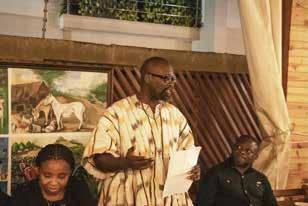
The Chief Executive O cer (CEO) of the Asian African Consortium (AAC), Mrs. Adelaide Araba Agyepong, has stressed the need for an all hands on deck approach to make the President’s vision of boosting rice production in Ghana a reality.
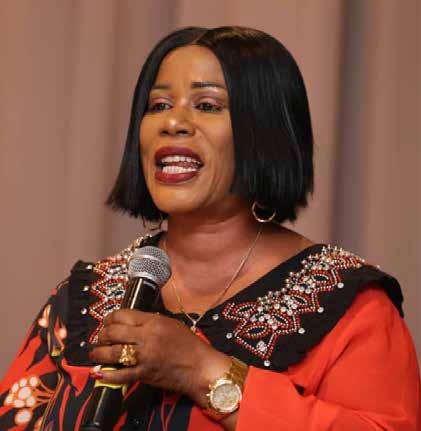
She said the vision of ending rice importation in Ghana goes beyond Jospong Group of Companies (JGC).
“It is heartwarming to mention that anywhere that we have been stakeholders both in Ghana and Thailand have shown great support and enthusiasm for this project,” she expressed.

Mrs. Siaw Agyepong was speaking at the Thailand-Ghana Business Conference at the Grand Fortune Hotel, Bangkok Sunday, March 19, 2023.
The business conference, which brought together captains of Thailand rice industry and Ghana’s delegation to Thailand, led by the Executive Chairman of JGC, Dr. Joseph Siaw Agyepong, was on the theme: “Ghana-Thailand Business Forum; Partnership for Sustainable Rice Production in Ghana.”
Members of the Ghana delegation included experts and researchers in Story continues on page 7
Story continued from page 6
various elds drawn from the University of Ghana, Legon, University of Cape Coast, Kwame Nkrumah University of Science and Technology (KNUST), Center for Scienti c and Industrial Research-Crop Research Institute (CSIR-CRI), the Ghana Rice Farmers Association, the Competitive African Rice Platform, traditional rulers, metropolitan, municipal and district chief executives (MMDCEs) and private entrepreneurs with the focus on rice, fertilizer, maize, cassava and poultry as well as executives of the Jospong Group of Companies (JGC).
Mrs. Siaw Agyepong indicated that from the inception of this project (last year-2022) till now, a lot of e orts have been put in by her out t towards actualising it.
“Key among the activities accomplished include the following: the setting up of the Asian African Consortium, as a company to drive the rice project; the engagement of high government o cials including the President of the Republic of Ghana; meeting key sector ministers; key rice sector players and many others,” she pointed out.
Against this backdrop, Mrs. Siaw Agyepong said forging
strategic partnerships was fundamental to the success of the project.


She also used the opportunity to announce that a fully-furnished National Rice O ce for the project has been set up in Accra.
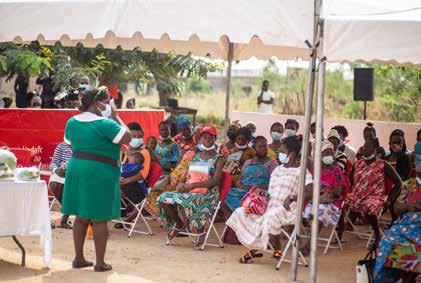
“Three zonal o ces in Koforidua, Kumasi and Tamale for the southern, middle and northern belts respectively will also be ready soon for the project. Adequate and suitable lands have been acquired across the country and ready for cultivation,” she further revealed.
She was upbeat that the visit to Thailand will help concretise and rm up the plans for implementation “as soon as we get back to Ghana.”
Ghana’s Deputy Minister for Food and Agriculture (in charge of Crops), Mr. Yaw Addo Frimpong, encouraged the investors in the Thailand rice value chain to come and invest in Ghana.
He said such an investment will mutually bene t both Thailand and Ghana, adding that the former has the experience and the technology to support Ghana to become self-su cient in rice production.
According to him, as a leader in rice production, Thailand can support Ghana in its e orts to close its rice consumption demand gap, and also produce in excess to export to countries within the West African sub-region.
“Our [Ghana’s] consumption demand for rice is between 1.2 million and 1.4 million metric tonnes of rice per annum and with this huge gap, the Ghana government together with the small scale rice farmers are only able to do 600,000 metric tonnes,” he disclosed.
He explained that the business forum was a continuation of the rice project that was started some ve months ago.
That process, he said, was initiated through the instrumentality of the Executive Chairman of the JGC, Dr. Siaw Agyepong.
Following the huge gap in the demand for the consumption of rice in Ghana, President Nana Addo Dankwa Akufo-Addo tasked Ghanaians to go at any length to ensure self-su ciency of rice in
the country, he said.
Mr. Addo Frimpong, therefore, commended the initiative by the private sector being spearheaded by the JGC to go into large scale rice production in Ghana, adding that the government of Ghana has given its full support.
He went on to stress that this project will help ll the rice consumption gap in Ghana.
He was also particularly excited at the level of enthusiasm shown in the Ghana-Thailand rice project by stakeholders in Thailand.
“Apart from that, the interest that has been shown by all stakeholders in the rice industry in Thailand is quite remarkable,” Mr. Addo Frimpong said.
In a brief remark, the Executive Chairman of the JGC, Dr. Siaw Agyepong, added his voice to the call by the deputy minister to captains in the Thailand rice sector to come and invest in Ghana.
He stressed that Ghana was a peaceful and safe haven to do business, assuring them that their investments will be protected.
“I am inviting you to a prosperous country; a peaceful country; a leader in the West African Sub-region, and; a leader in the whole of Africa, especially in the area of peace and stability,” Dr. Siaw Agyepong assured.
Her decision turned out to be
“When I got to the health centre, I was registered and given a sheet and number,” Dora said. “The midwives gave education on the four-star diets. I was then ushered into the scan room where I had my scan done. I saw my baby, and the report was given to me. We
However, just minutes after receiving her scan, Dora began experiencing cramps in her abdomen. The midwives who were present quickly assessed
ed. They rushed her to the ward where, shortly after, she gave birth to a bouncing baby
which aims to make the benets of digital society accessible to all. The provision of free ultrasounds is a step towards addressing the needs of pregnant, underserved women while harnessing the power of portable, life-saving technology.
Patricia Obo-Nai, CEO of Vodafone Ghana, emphasised the importance of partnerships in accelerating access to digital healthcare in Ghana, saying, “We believe that no woman should die during childbirth, and we are committed to leveraging technology to reduce maternal and neonatal mortality rates in Ghana.”
Manwuro, a 29-year-old mother of three, knows this all too well.
Living in Amanase, a remote village in the Ayensuano District of the Eastern Region, Dora had been paying GHC30 for every ultrasound scan during her pregnancy and had to travel to Suhum or Asuboi for the service. Many expectant mothers across Ghana face similar healthcare challenges.
villages across the country can access free mobile ultrasound services. To date, the programme has helped provide free ultrasound scans to over 20,000 pregnant women.
Dora became intrigued when she heard through her community’s information centre that the programme would provide free ultrasound scan services for pregnant women in her community, and she decided to take part.
“It was like a miracle to me,” Dora says. “If not for the scan programme, I would have had to pay for transportation to the clinic, and I may have arrived late because my husband was not around.”
“They gave me all the necessary support during the programme, and I heard this was the rst time this has happened during a scan service by Vodafone,” she said happily.
This initiative is also in line with Vodafone Ghana’s “Inclusion for All” purpose pillar,
For Dora, the Rural Ultrasound Scan programme has had a signi cant impact on her life, and she recommends it to all pregnant women. “The services are free, and the sta are friendly as well,” she said. “You get answers to all your questions and get snacks after the programme.”
With initiatives like the Rural Ultrasound Scan programme, Vodafone Ghana is taking important steps to address the healthcare challenges facing underserved communities in Ghana and ensure that no mother or child is left behind.
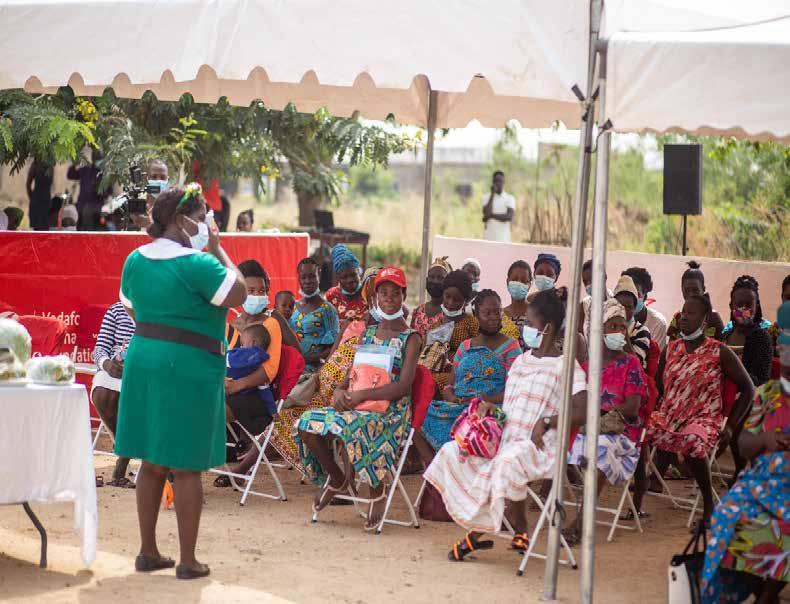
Huawei on Thursday, March 16, 2023 delivered its position on the Ghana Chamber of Telecommunications’ 2023 Mobile Technology for Development (MT4D) Conference dubbed, “Driving Digital Inclusion In The Real Economy” with its FinTech 2.0 Solution.
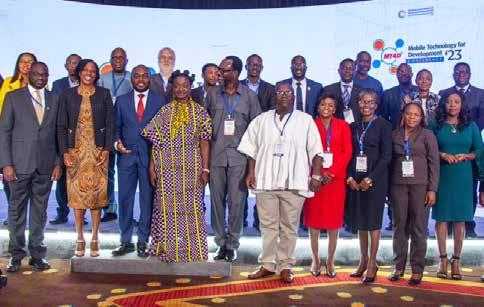
At the event, held at the Kempinski Hotel in Accra, Mr. Lee Maina, Head of FinTech,
Huawei Southern Africa Region indicated that, Huawei as a Global Leader in FinTech Solutions with insight on current trends in Ghana, Kenya and other Sub-Saharan countries where inclusion has heavily been driven by mobile money and its reach to the unserved and underserved, believes that: “It’s the ideal time to expand FinTech from
Story continues on page 9
Story continued from page 8
being ubiquitous to a tool used in deepening nancial inclusion to help drive value for the real economy.”
According to Mr. Lee Maina, Mobile FinTech space is entering a new phase where customer data is becoming more critical in the endeavor to authenticate, o er the most suitable services and in carrying out more precise credit assessments. “This is no longer those “nice to have” approaches but a vital cog in retaining and gaining market share in an ever-crowding industry where even new entrants are challenging established incumbents.”
In the race for ownership of the customers’ mind share, we believe the winners will be the ones that will have the most valuable, relevant, holistic and authenticated body of data that enables them to o er the most suitable services to customers, at the most suitable time and at a user speci c pricing.
For us to generate this rich data that’s scattered across di erent sectors, platforms and players, there is the need for concerted e orts from all stakeholders not only in bringing everyone online but also in collapsing our approach to
technology from Silo based to layer based where information is easily shared. Huawei’s FinTech 2.0 seeks to bridge this gap created by fragmentation by bringing this layered approach not just to FinTech Technology but also in the upselling of ideal services where the personalized proposition for each user deepens based on our understanding of each customers habits and needs.
As a world-leading ICT enterprise, Our Vision and Mission is to bring digital to every person, home and organization for a fully connected and intelligent world. With Fintech 2.0, we continue to invest heavily in FinTech research and innovation, supporting players in the FinTech space to create end to end solutions that will bring the value chains online, basically seeking to solve some of the persistent problems they may be having beyond payments.
That way, we remove any lethargies to adoption extending their resilience, ultimately generating the required data to extend services & drive localized innovation and ensuring e cient deployment of capital and resources.
For the Ghanaian market, Huawei has deployed its
Finance and payments cloud as part of its FINTECH 2.0 strategy which boasts micro loan, buy now pay later, shoppers’ loan, overdraft, savings, Super apps with mini apps etc. allowing FinTechs in Ghana to enjoy them on SAAS (Software As A Service) mode with minimal investment whiles o ering them the exibility to localize the solutions and utilize the local developer ecosystem for scale & support via a low code/no code developer platform.
Its estimated that Ghana has over 20K developers and the local universities add approximately 1K new developers into the job market annually. It’s not viable to absorb all these talents in the current job environment nor will all the surplus have an equal stab at entrepreneurship, it is therefore prudent to devise a sustainable way to accommodate them into our FinTech strategy and ecosystem and they will play a vital role not only in scaling our services to the longtail customer segments but also in driving local innovations. Huawei Low code/no code developer solution empowers FinTechs to achieve this vision.
“We have deployed our FinTech in more than 40 sites
globally which is currently serving more than 400M customers, so It’s not just Technology but our ability to package all this best practice learnings from other successful sites and bring that success DNA to your project to ensure faster time to revenue. Huawei seeks partnerships in Ghana with like-minded organizations to deepen nancial inclusion”, - Lee Maina –Huawei Head of FinTech, Southern Africa region.
About MT4D Conference Mobile Technology for Development is an event that provides the platform for stakeholders within the nancial, technology and development sector to converge at a single location to share ideas, exhibit solutions and take stock of innovations in payments, deposit, credit, remittance and insurance, and build partnerships for enhanced e ort towards nancial inclusion in Ghana. Through the insights and perspectives shared policy ideas is formulated to in uence policies on nancial inclusion.
The event is the largest gathering of Fintech players, innovators, regulators, investors, big techs, developmental communities, and several other players in Africa and from across the globe.
-END-
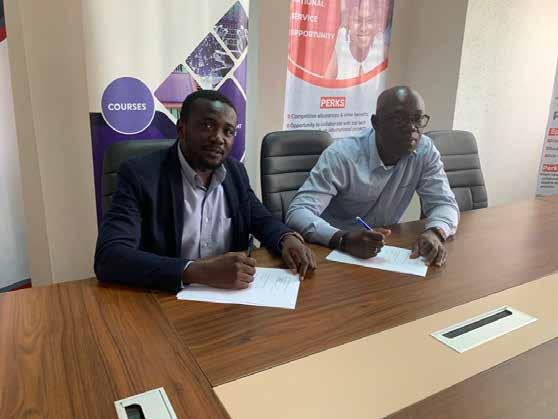
Slamm Technologies Limited –a leading global Information Technology (IT) services provider – has partnered with AmaliTech Ghana Limited to provide employment opportunities and industry experience to young Ghanaians in the technology space.
The collaboration, formalised with the signing of a Memorandum of Understanding (MoU), will focus on three areas upskilling students in web and software development; mentorship programs, as well as
employment, National Service, and internship opportunities at AmaliTech.
Speaking at the ceremony, Head of IT Training Support and Services at Slamm Technologies, Prince Carl Tu uor Frimpong, who signed the MoU on behalf organisation explained that the partnership aims to bridge the skills gap in the country and equip young persons with the necessary tools to excel in the digital world.
Story continues on page 10
Story continued from page 9
“This MoU is to support the development of Ghana's youth by providing them with valuable employment opportunities and industry experience in the technology sector. As part of the initiative, Slamm Technologies will seek to connect its graduates with digital and non-digital programs o ered by AmaliTech and these programmes are designed to equip participants with the skills needed to work as freelancers or secure decent job opportunities upon completion of their training,” he said.
He stated that the agreement forms part of Slamm Technologies' e ort to contribute to the rapidly growing tech space and the country's overall economic growth.
“The partnership between Slamm Technologies and AmaliTech Ghana Limited represents a valuable opportunity for Slamm Technologies to expand its reach, improve the employability of its graduates, and support the growth of the tech industry in Ghana,” Mr. Frimpong further remarked.
On his part, the Director of Operations at AmaliTech Ghana, Matthew Opoku-Darkwa, reiterated the need to train more young people, especially women, in the digital space. According to him, Slamm Technologies represents the ideal partner to help recruit people operating in the tech space, particularly women, to their service centre.
“This agreement is in place to encourage more participation in the tech sector, and we need to support our young people who are interested in technology, particularly women. This agreement aims to prepare these students for the local as well as the global job market,” he said.
He was optimistic that the union will achieve its objective of giving young people who are interested in technology jobs that require technical skills for both the domestic and global markets. Elaborating further on the opportunities presented by the partnership, Executive Secretary at Slamm Technologies, Cinzia Amartei, stated that graduates of the Software Development programme
would be considered for promotion to Level 2 of AmaliTech's GTP programme. This, she added, would hinge upon passing assessments in areas such as HyperText Markup Language (HTML) and Cascading Style Sheets (CSS). The graduates would also have access to AmaliTech's Digital Innovation Programme for National Service and freelancing opportunities, she noted. “The primary objective is to connect Slamm Technologies’ graduates with AmaliTech's Graduate Trainee Programme, with a focus on web and software development, although not limited to it. Successful completion of the programme would lead to employment as a software developer,” she said.
of Ghana, Legon, University of Cape Coast, Kwame Nkrumah University of Science and Technology (KNUST), Center for Scienti c and Industrial Research-Crop Research Institute (CSIR-CRI), the Ghana Rice Farmers Association, the Competitive African Rice Platform, traditional rulers, metropolitan, municipal and district chief executives (MMDCEs) and private entrepreneurs with the focus on rice, fertilizer, maize, cassava and poultry as well as executives of the Jospong Group of Companies (JGC).
ed through the instrumentality of the Executive Chairman of the JGC, Dr. Siaw Agyepong.
Following the huge gap in the demand for the consumption of rice in Ghana, President Nana Addo Dankwa Akufo-Addo tasked the Ministry of Agriculture and all in the the private sector to go at any length to ensure self-su ciency of rice in the country, he said.
Ghana’s Deputy Minister for Food and Agriculture (in charge of Crops), Mr. Yaw Addo Frimpong, has urged investors in the Thailand rice value chain to come and invest in Ghana.
He said such an investment will mutually bene t both Thailand and Ghana, adding that the former has the experience and the technology to support Ghana to become self-su cient in rice production.
Mr. Addo Frimpong, who doubles as the Member of Parliament (MP) of Manso Adubia Constituency in the Ashanti Region, was speaking at the Thailand-Ghana Business Con-
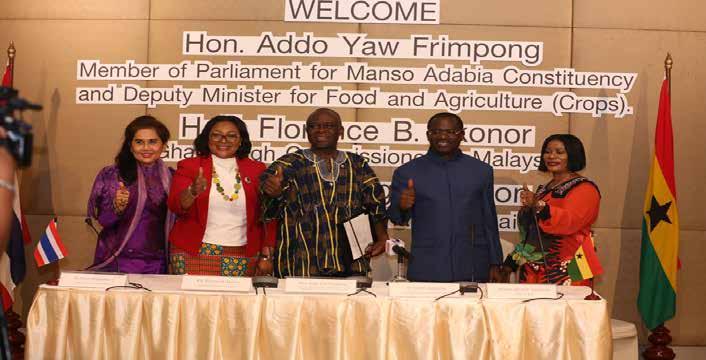
ference at the Grand Fortune Hotel, Bangkok Sunday, March 19, 2023.
The business conference, which brought together captains of Thailand rice industry and the Ghanaian delegation to Thailand, led by the Executive Chairman of the Jospong Group of Companies (JGC), Dr. Joseph Siaw Agyepong, was on the theme: “Ghana-Thailand Business Forum; Partnership for Sustainable Rice Production in Ghana.”
Members of the Ghana delegation included experts and researchers in various elds drawn from the University
According to the deputy Agric Minister, as a leader in rice production, Thailand can support Ghana in its e orts to close its rice consumption demand gap, and also produce in excess to export to countries within the West African sub-region.
“Our [Ghana’s] consumption demand for rice is between 1.2 million and 1.4 million metric tonnes of rice per annum and with this huge gap, the Ghana government together with the small scale rice farmers are only able to do 600,000 metric tonnes,” he said.
He explained that the business forum was a continuation of the rice project that was started some ve (5) months ago.
This process, he said, was initiat-
Mr. Addo Frimpong, therefore, commended the initiative by the private sector being spearheaded by the JGC to go into large scale rice production in Ghana, adding that the government of Ghana has given its full support to the project.
He went on to stress that this project will help ll the rice consumption gap in Ghana.
He was also particularly excited at the level of enthusiasm shown in the Ghana-Thailand rice project by stakeholders in Thailand.
“Apart from that, the interest that has been shown by all stakeholders in the rice industry in Thailand is quite remarkable,” he said.
Story continued from page 10
The Chief Executive O cer of the Asian African Consortium (AAC), Mrs. Adelaide Araba Agyepong, who is the wife of Dr. Siaw Agyepong, stressed the need for an all hands on deck approach to make the President’s vision of boosting rice production in Ghana a reality.
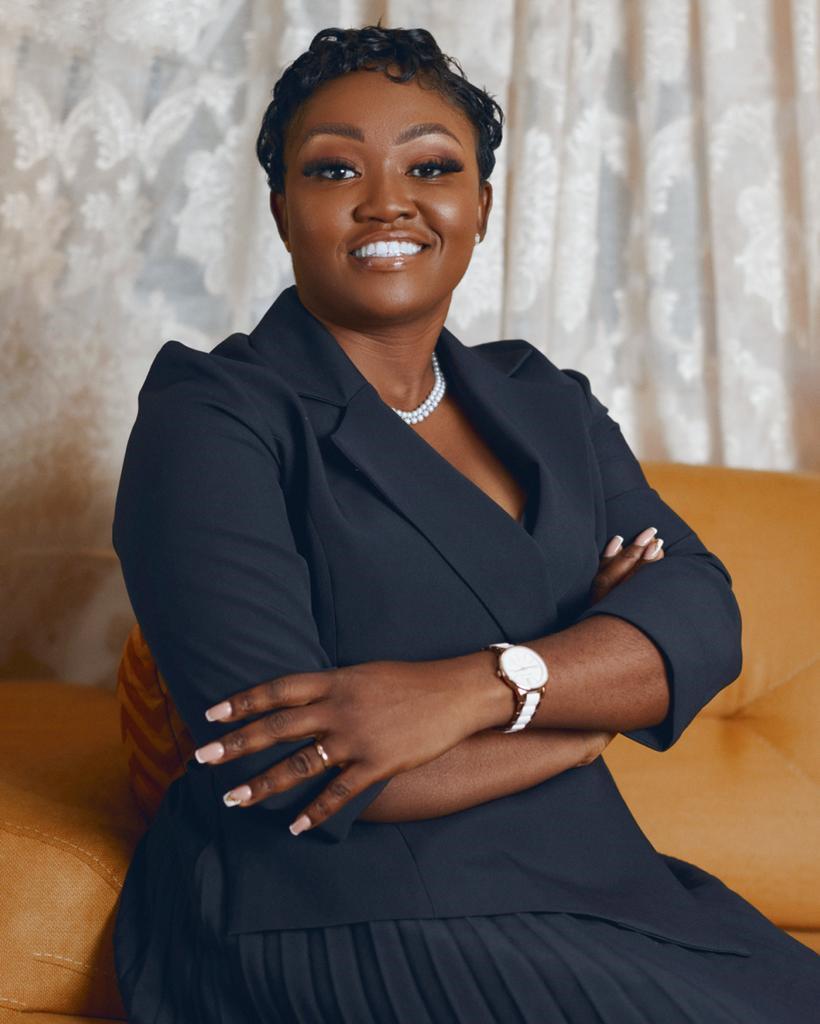
“Evidence shows that the vision of ending rice importation in Ghana goes beyond Jospong Group of Companies,” she noted.
She indicated that from the inception of the project (last year-2022) till now, a lot of e orts have been put in by her
out t towards actualising the rice project.
“Key among the activities accomplished include the following: the setting up of the Asian African Consortium, as a company to drive the rice project; the engagement of high government o cials including the President of the Republic of Ghana; meeting key sector ministers; key rice sector players and many others,” she pointed out.
Mrs. Siaw Agyepong underscored that the forging of strategic partnerships was fundamental to the success of the project.
In this regard, she announced
that a fully-furnished National Rice O ce for the project has been set up in Accra.
“Three zonal o ces in Koforidua, Kumasi and Tamale for the southern, middle and northern belts respectively will also be ready soon for the project. Adequate and suitable lands have been acquired across the country and ready for cultivation,” she further revealed.
She was upbeat that the visit to Thailand will help concretise and rm up the plans for implementation “as soon as we get back to Ghana.”
In a brief remark, the Execu-

tive Chairman of the JGC, Dr. Siaw Agyepong, added his voice to the call by the deputy minister of food and agriculture to captains in the Thailand rice sector to come and invest in Ghana.
He stressed that Ghana was a peaceful and safe haven to do business, assuring them that their investments will be protected.
“I am inviting you to a prosperous country; a peaceful country; a leader in the West African Sub-region, and; a leader in the whole of Africa, especially in the area of peace and stability,” he assured.
Vodafone Ghana Mobile Financial Services Limited (Vodafone Cash) and MobileMoney Limited (MML) have enabled interoperability services that allow MTN Mobile Money and Vodafone Cash customers pay at each other’s merchant point of sale.
This is a major milestone in creating an enabling environment in furtherance of the nancial inclusion agenda of both entities and the Government of Ghana.
The service went live on March 1, 2023 and is available to all Vodafone Cash and MTN Mobile Money customers.
Customers of both networks can now make direct payments for goods and services at any MTN Mobile Money or Vodafone Cash enabled merchant point across the country.
Commenting on this development, Shaibu Haruna, the Acting
Chief Executive O cer of MML indicated that “this important rst step is in line with the MTN Group Ambition of developing the largest nancial services platform in Africa.
We are deeply committed to building an all-inclusive payment ecosystem that provides a platform for all players to ourish. We look forward to partnering with other players in the market to leverage o our distribution network to o er their services to customers”.
Vodafone Cash’s Acting Mobile Financial Services Manager, Judith Adumua-Bossman, stated that “At Vodafone Cash, we believe that partnerships are key to expanding access to nancial services for everyone. We are dedicated to creating innovative solutions that will help our customers better manage their nancial goals. This is a truly historic moment for us, and this new feature underscores our commitment towards growing accessibility, convenience, and value for our customers.
in place, the EU must also ensure that they meet their end of the bargain by paying the right prices for cocoa. He was grateful to the EU for various support and their Sustainable Cocoa Initiative to enhance the sustainability of cocoa production and trade.
Head of Cooperation, EU delegation to Ghana, Massimo Nina, who led the team, said the EU is committed to building stronger relations with COCOBOD in its e orts at ensuring traceability and
He acknowledged the concerns raised, admitting, that the current pricing framework does not match the living income of cocoa farmers in the two leading producing countries.
According to him, there is the need for the European Union to take steps to ensure that cocoa farmers income and livelihoods are improved to correspond with their inputs in cocoa production.
According to him, the legislation in its current form cannot sustain the industry and improve incomes of cocoa farmers.
Mr. Boahen Aidoo made these comments when he met with a four-member delegation from the European Union to among others discuss ongoing conversations on sustainability, traceability and child labour withn the sector.

The EU is the world's largest importer of cocoa, accounting for 60% of world imports. Côte d'Ivoire, Ghana and Cam-
mitted to maintaining its status as the best producer of premium quality cocoa in the world, in addition to ensuring that cocoa cultivation is devoid of deforestation and use of services of children in cocoa farms and urged the EU to ful l its part of the social contract.
The COCOBOD chief mentioned that, Ghana has worked to provide a common ground for sustainability.
“Although deforestation is a huge challenge, we must consider that cocoa is the only crop which has preserved Ghana’s forest and supported
introduced to mitigate poverty among cocoa farmers in Côte d'Ivoire and Ghana and it is therefore imperative that particular attention is paid to the cocoa farmer who forms the basis for all the discussions. The Chief Executive added that the Board has introduced the Cocoa Management System (CMS) to ensure cocoa traceability and sustainability.
According to him, with all these interventions
He commended the Ghana and Cote d’ Ivoire for their initiative to introduce the LID to mitigate the plight of cocoa farmers.
Mr. Massimo Nina further added that the Union would work closely with collaborators to ensure equitable pricing for cocoa farmers. “I must say your processes towards ensuring sustainability, traceability and elimination of child labour within the sector are on a good track”, he added.
The EU has over the years committed to a set of concrete time-bound actions to improve the sustainability of the cocoa supply chain in West Africa, to halt deforestation and child labour, and improve the living income of farmers.
Chinese President Xi Jinping met with his Russian counterpart, Vladimir Putin, at the Kremlin on his arrival in Moscow on Monday.
When Xi reached the Kremlin, he was greeted by the Kremlin Commandant at the alighting point. Putin warmly shook hands and took photos with Xi. The two presidents had an in-depth and candid exchange on China-Russia relations and issues of mutual
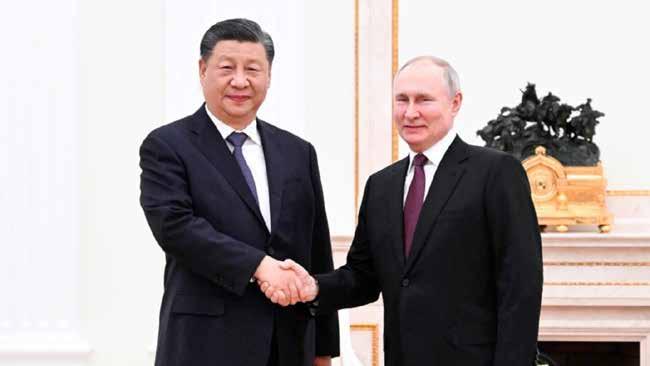
interest.
Xi stressed that there is a profound historical logic for China-Russia relationship to reach where it is today. China and Russia are each other's biggest neighbor and comprehensive strategic partner of coordination. Both countries see their relationship as a high priority in their overall diplomacy and policy on external a airs.
China always upholds an indepenStory continues from page 13
Story continued from page 12
dent foreign policy. To consolidate and develop well China-Russia relations is a strategic choice China has made on the basis of its own fundamental interests and the prevailing trends of the world, said Xi.
China is rm in keeping to the general direction of strengthening strategic coordination with Russia, Xi said, adding that both China and Russia are committed to realizing national development and rejuvenation, support world multi-polarity and work for greater democracy in international relations.
Xi said the two countries should further deepen practical cooperation in various elds and strengthen coordination and collaboration on multilateral platforms such as the UN to
boost their respective national development and rejuvenation, and be a bulwark for world peace and stability.

Putin extended a warm welcome to Xi for his state visit to Russia and once again warmly congratulated him on his reelection as Chinese president.
With concerted e orts by both sides, Russia-China relations in recent years have delivered fruitful results in various areas, Putin said, adding that Russia stands ready to continue to deepen bilateral practical cooperation, step up communication and collaboration in international a airs, and promote world multi-polarity and greater democracy in international relations.
The two sides had an in-depth exchange of views on the Ukraine
issue.
Xi stressed that, on the Ukraine issue, voices for peace and rationality are building. Most countries support easing tensions, stand for peace talks, and are against adding fuel to the re. A review of history shows that con icts in the end have to be settled through dialogue and negotiation.
China released a document on its position on the Ukraine crisis, advocating the political settlement of the crisis and rejecting the Cold War mentality and unilateral sanctions, said Xi. China believes that the more di culties there are, the greater the need to keep space for peace. The more acute the problem is, the more important it is not to give up e orts for dialogue.
China will continue to play a constructive role in promoting the political settlement of the Ukraine issue, said Xi.
For his part, Putin said that Russia appreciates China for consistently upholding an impartial, objective, and balanced position and standing for fairness and justice on major international issues. Russia has carefully studied China's position paper on the political settlement of the Ukraine issue and is open to talks for peace. Russia welcomes China to play a constructive role in this regard.
The two presidents said that they look forward to formal talks on the next day to draw up a new blueprint for China-Russia comprehensive strategic partnership of coordination in the years to come.
Source(s): Xinhua News Agency
Emirates has been awarded the Presidential Honour for Distinguished Service, at The Ghana National Honours Awards 2023 from President Nana Akufo-Addo for its role in providing medical supplies, humanitarian aid and unstinting support to Ghana during the COVID-19 pandemic.
The airline’s cargo arm airlifted and distributed 62 tonnes of Covid-19 vaccine doses to
billion doses, to over 80 destinations on 2,000 Emirates ights with two-thirds of these doses being transported to developing countries.
Emirates also supported the transport of equipment donated by China’s Jack Ma Foundation to the Government of
3,000 Ghanaian citizens, residents and others from over 31 cities seeking to return to the country from across its network.
Emirates has been operating to Ghana for the past 19 years, supporting the country’s trade and tourism develop-
ment, through carrying visitors into the country and opening trade lanes for businesses and exporters alike. Today, Emirates operates a daily non-stop service between Accra and Dubai, connecting travellers and exporters to a network of over 140 passenger and cargo destinations. Leading the aviation and air cargo industry in a timely response to the crisis, Emirates formulated its COVID-19 distribution strategy in 2020 and mobilized the movement of vaccines through its Dubai hub to developing countries. The air cargo carrier helped transport thousands of tonnes of urgently required PPE and other medical supplies across six continents by rapidly adapting its business model and introducing additional cargo capacity through its modi ed mini freighters on Boeing 777-300ER passenger aircraft.
Among other categories, the national awards were presented to individuals, institutions and partners who undertook exemplary work and contributed in supporting Ghana during the pandemic.
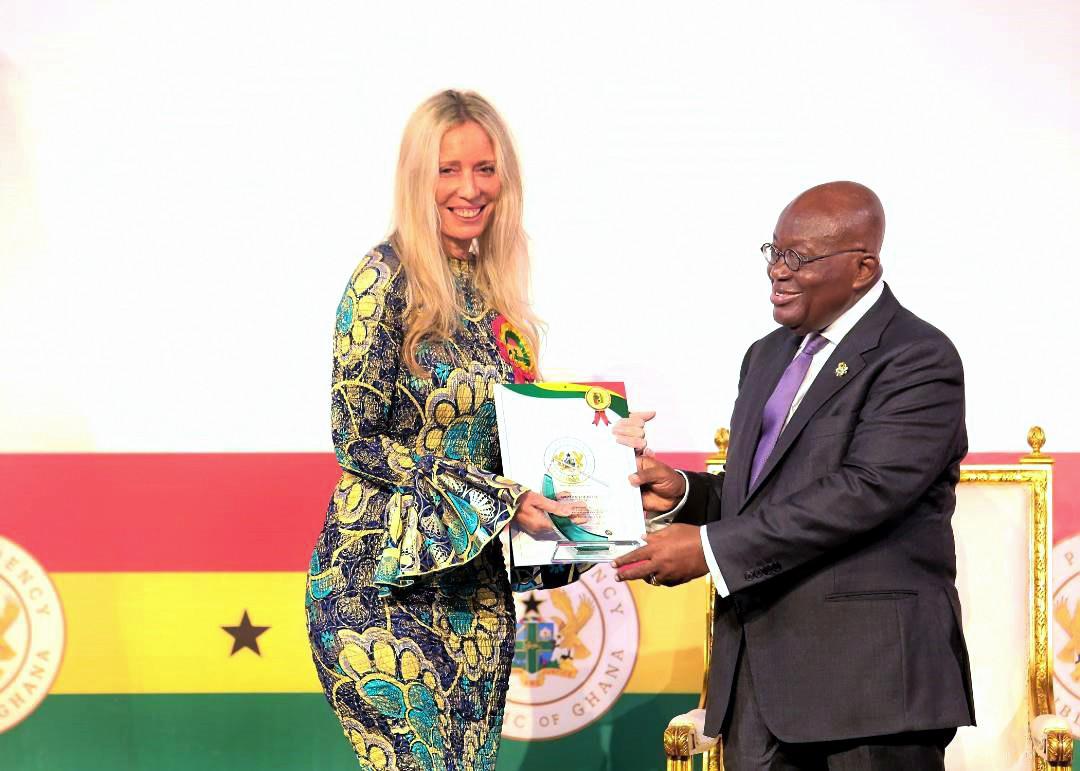
and cultural heritage and promoting the world’s diversity.
•Providing more enjoyable experiences for tourists through more meaningful connections with local people, and a greater understanding of local cultural, social and environmental issues.
While the media is to contribute positively to the development and growth of the tourism industry, there have been occasions where the media has adversely a ected tourism in several countries including Ghana.
negative news. Media practitioners who don’t know must eat their humble pie and learn. After all knowledge is power. These negative news reportage a ect international arrivals as well as foreign direct investment. In stark contrast, if a destination in Ghana is portrayed as unsafe no tourists will ever dream of visiting the destination in question.
to promote tourism has intensi ed. The latest to add his voice is The Deputy Minister of Tourism, Arts and Culture, Mark Okraku Mantey. He stated that the tourism sector, one of fastest-growing industries in the country, needs media support to sustain progress. The sector contributed US$2.1billion to the economy in 2021 and was estimated to have generated about US$2.3billion by the end of the year 2022, making it one of the fastest-growing sectors. Against this background, Mr. Okraku said the support of the media is needed to highlight key tourist attraction sites across the country so as to attract more tourist, both internal and external.
Mr. Francesco Frangialli, the former UNWTO Secretary-General once expressed the view that, modern day tourism is highly dependent on media reporting. I agree with him because, a vast majority of travel decisions are made by tourists who have never been to their anticipated destination. Many of the travellers around the world today are making their travel decisions on their own with little or no help from tour operators. To make these decisions they use information from multiple media sources which include the print and electronic not overlooking
ly decide on the destination rst, based on what they have heard or seen from the media. With many Ghanaians using social media means sites like Tik-Tok, and the others must be used to pave the way.
The media today has evolved into a multi-faceted force that has become an integral part of our life, in uencing almost everything we do. The media is no longer con ned to one way communication. Using available technology and social media, we can now communicate and interact with one another anywhere on planet earth instantly. Today information virtually has no barriers thanks to this media explosion.
The role of the media in promoting tourism should not be limited to only the traditional media such as television, radio, newspapers, magazines etc.
The focus of media should be about promoting the following good practices;
• Protection of the environment and minimizing negative social impacts of tourism.
• Generating greater economic bene ts for local people and enhancing the well-being of host communities through the multiplier e ect.

• Making positive contributions to the conservation of natural
A rejoinder to foreign newspapers and other news outlet who do not carry favorable news about Ghana is necessary. We all can attest to the fact that any negative stories a ected tourism in Ghana and the continent as a whole. But, should all the blame be attributed to the foreign media alone? What about the local media in Ghana? Why don’t we have an African centered media house from where most African media houses will take their news feed. Currently, most if not all our international news are taking from foreign sources.
Bench Event conducted a research on doing business in Africa. The rst question asked was; what is the biggest in uence in your opinion of doing business in Africa? It was reported that Media accounted for 17%, Family and Friends 6%, Business partners 28%, Firsthand experience 46% other (please specify) 3%.
Question two was about those who have not/never done business Africa. It was reported also that the Media accounted for 71%, Business Partners 14%, First-hand experience 14%, other 1%
The above research ndings showed that for companies who had never done business in Africa, 71% were in uenced by the media. The point I’m making is simple; irrespective of the hard work of government, the Ghana Tourism Authority, all the various stakeholders and newspapers like the Business and Financial Times etc, the bad reportage by reckless media houses will thwart all the positive e orts. The media must keep telling the positive stories about Ghana and ght all negative news from foreign media.
When the negative news happens, they must be circumspect in reportage. The UNWTO has many documents and reports on how to report
On the other hand it is important to mention that there are also examples where the media directly helped destinations e ected by disasters to bounce back. A classic example was the 2002 bomb blast in Bali which was a direct attack on tourism, killing 202 people. The impact was devastating in a place where 25% of regional GDP depended on tourism. However public media stepped in, and started a continuous dialogue with the Indonesian Government. They publicized a series of steps taken by the government to address the issue, how the evidence was investigated to capture the bombers, how government o cials met the families of victims and shared their losses. The world was reminded that Balinese people have a gentle and religious outlook, and this played a key role in the recovery of Bali’s image as a safe and charming tourist destination. In order to show that Bali had recovered, the government stimulated domestic tourism. The media showed the world that hotels, beaches, shopping areas and other tourism attractions have returned to normalcy. These e orts helped rebuild tourism in Bali. During the last 3 decades.
It is my hope that the media will help promote tourism by visiting tourist sites and helping expose these sites to the public.
Philip Gebu is a Tourism Lecturer. He is also the C.E.O of FoReal Destinations Ltd, a destinations management and marketing company based in Ghana and with partners in many other countries. Please contact Philip with your comments and suggestions. Write to forealdestinations@gmail.com / info@forealdestinations.com
Visit our website at www.forealdestinations.com or call or WhatsApp +233(0)244295901.Visist our social media sites Facebook, Twitter and Instagram: FoReal Destinations.
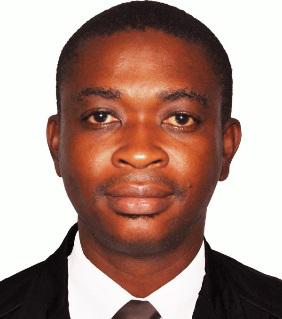
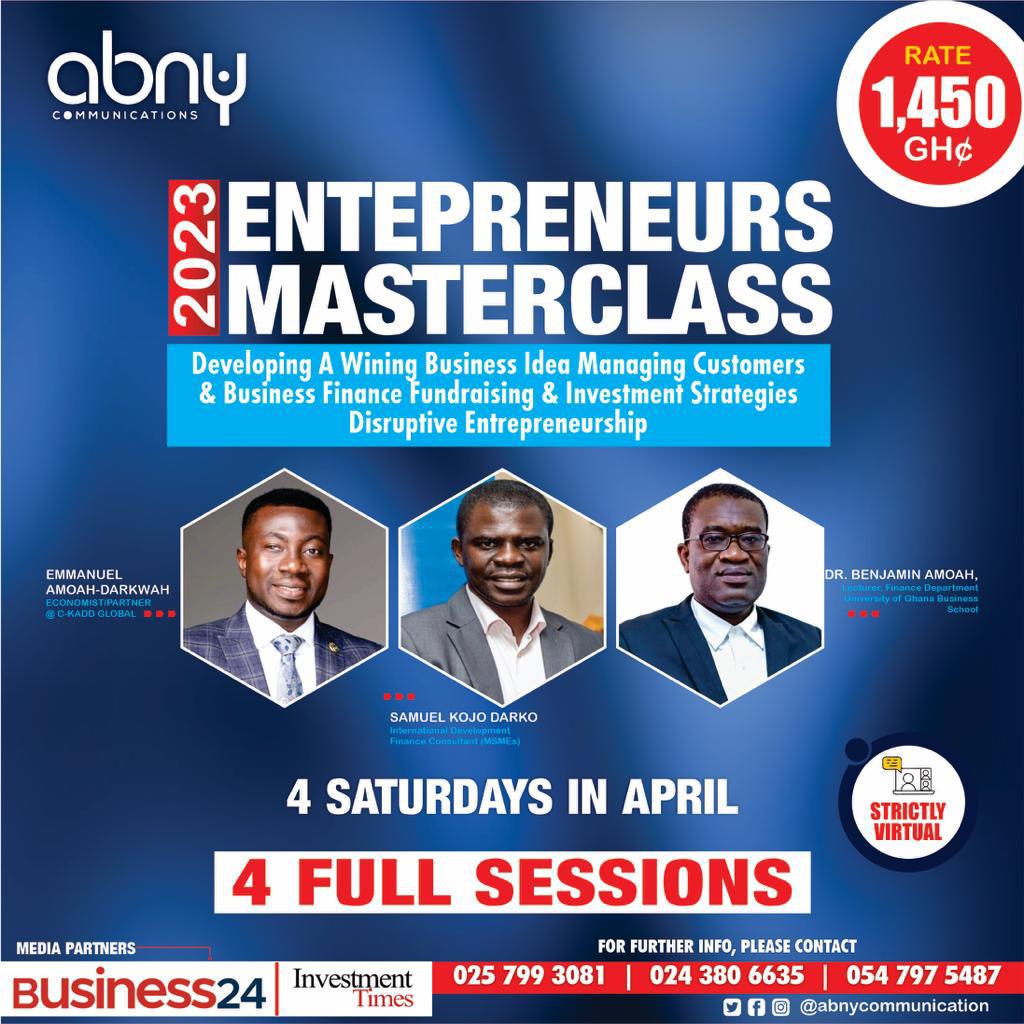
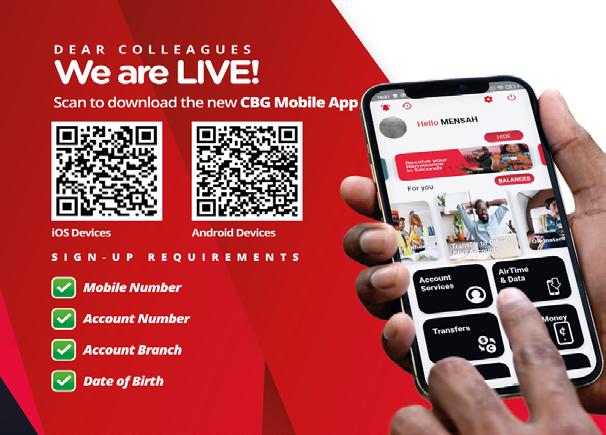
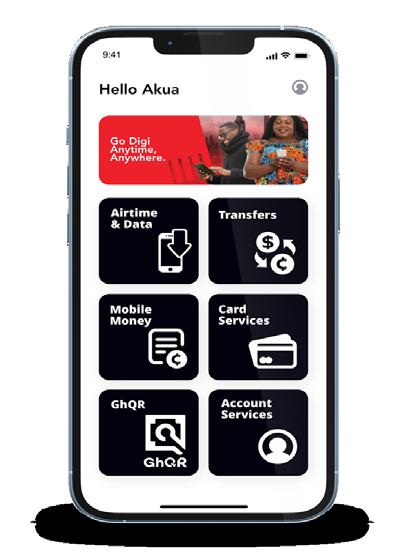



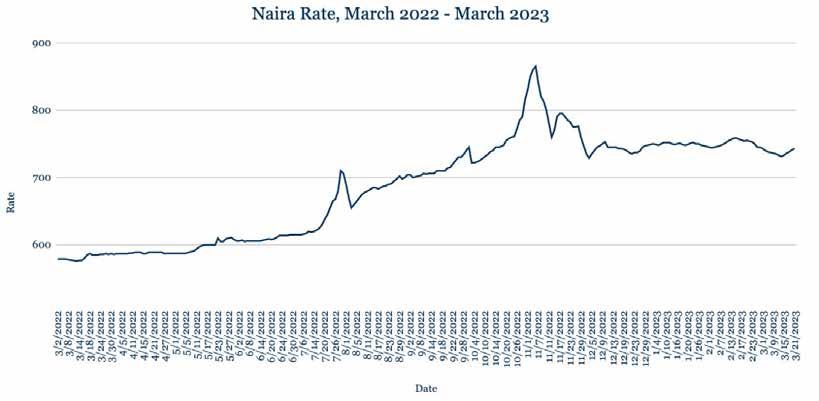




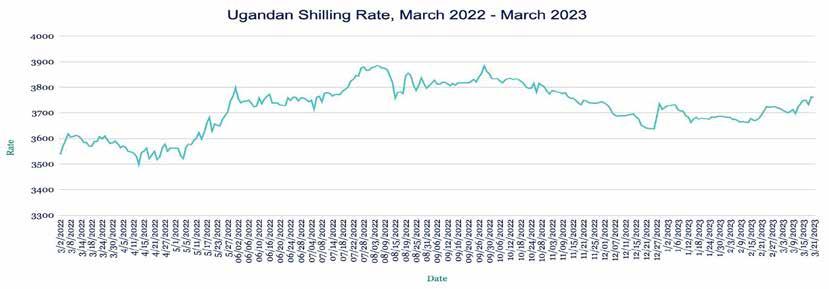
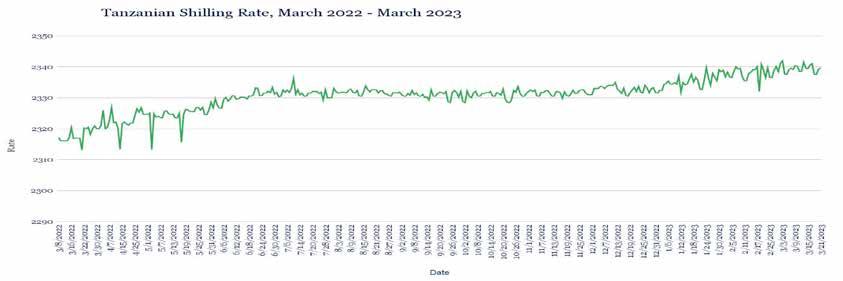

Government had earlier anno unced a set target o f GH¢2 775 at the treasury auc tio n but a t the end, tot al bids amounting to GH¢3.895 billion was tendere d , of whic h Go vernment acc epted 99 41 % amount ing to GH¢3 .872 billion
The week-on- week yields witne s sed an o verall appro ximated d ro p of 1.47b ps and 1 58bps across the 91 and 182- day bills respectively






At the j ust ended Treasury Bi ll auc on, the Government accepted a total bid of GH¢3.32 billion across the 91, 182 and 364-day bills in the f ace of a total tender of bids, amoun ng to GH¢4.20 billion
The week-on-week yields witnessed an overall approximated drop of 4.16bps, 3.71bps and 0.72bps across the 91, 182 and 364-da y bills respec vely.

in December 2018 at the Efua Sutherland Park in Accra with seven Waakye vendors, and was attended by about 500 attendees. Subsequent editions saw steady growth in patrons and vendors.
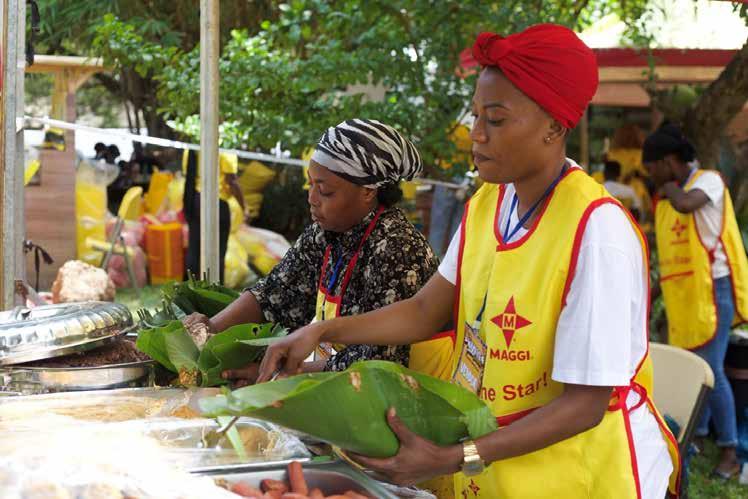
Empowering women and promoting digital inclusion
a standstill with its fth edition held earlier this month at the Mmofra Place, next to Marvel’s mini-golf, at Dzorwulu, Accra. The festival, organized by a group of young and enterprising business executives, saw about 4,000 people from all walks of life converge to eat, drink, play and network. The event served not only as a chance to celebrate and enjoy delicious Waakye, but as an opportunity for businesses to network and build partnerships.
It brought together some of the most renowned and best Waakye vendors in the capital including Sisters Waakye, Adabraka; Hajia Waakye Boutique, Madina; Rockz Waakye, Rockstone’s O ce; Fulera Waakye and Waakye Wi , both at Madina. Others include Waakye Exclusive, (Nyaho) Airport Residential Area; Anadwo Waakye, East Legon; The Lord is My Shepherd Waakye, Adjiringanor; and Assibi Number 1 Waakye also located at East Legon. These were accompanied by
ice cream and pancakes. Side attractions included paintball, video games, painting sessions, a kids’ area, and music from a live band and brass band; it was once again a top-notch memorable experience.
Beyond Accra and Ghana - a tourism initiative
The festival is also in line with the ‘See Ghana, Eat Ghana, Wear Ghana, Feel Ghana’ campaign, which aims to promote domestic tourism and enhance the economic viability of Ghana's cultural identity while growing local markets and gaining access to global markets. The ‘Eat Ghana’ agenda is given top priority, and the festival o ers the perfect platform to promote Ghanaian food and culture.
Consequently, in line with expanding the national ‘Eat Ghana’ agenda, the organizers of the Waakye Summit have set their sights on taking the event to other cities in the country and then beyond the shores of Ghana, in the process becoming the biggest food
“We have seen rst-hand the reception from local and foreign participants and we are optimistic that this could be one of the country’s major tourism exports. The goal is to promote tourism in Ghana through this initiative,” said Derrick Crentsil, the Founder and Lead Organizer. The origin Recounting its origin, Derrick Crentsil said the Waakye Summit started through the @Waakye_Radar blog on Instagram and Facebook, which he founded with Jessica Poku, a partner, and they sought to share their reviews and direct lovers of the Waakye delicacy to the best joints in Ghana.
“As the community of Waakye lovers grew, I created the festival as the next step in bringing both the followers and Waakye vendors together to celebrate and promote this delicacy in an e ort to make it known globally. I am grateful to be working with a team who are equally as excited about the idea and passionate in making this vision a reality,” Derrick Crentsil noted.
The maiden edition was held
The Waakye Summit, according to Lady Mardell Masopeh, one of the organizers, is particularly concerned about ensuring that vendors, most of whom are women, receive payments at the lowest cost possible. Consequently, the Waakye Summit is viewed as an intersection between women empowerment and technology. In this recent edition, the vendors were set up to receive payments via GhQR. “About 75 percent of the vendors were women, and as organizers, who are passionate about promoting digital transactions, we have taken steps and ensured that about 40 percent of the transactions were done digitally. Our goal is to drive this up signicantly in subsequent editions,” she added.
According to Caleb Darko, a co-organiser, the sixth edition of the Waakye Summit scheduled for December 26, 2023, will be even bigger, and will provide the opportunity for more corporate participation, a wider catalogue of side attractions and businesses of other local products, and most importantly, an increase in the number of participating Waakye vendors.
The fth Waakye Summit was sponsored by Maggi, Malta Guinness, Fidelity Bank, Bel Aqua, Uber, and Vigor Security Services. Media partners were Asaase Radio, Mx24 TV, NET2 TV, and Oman FM.